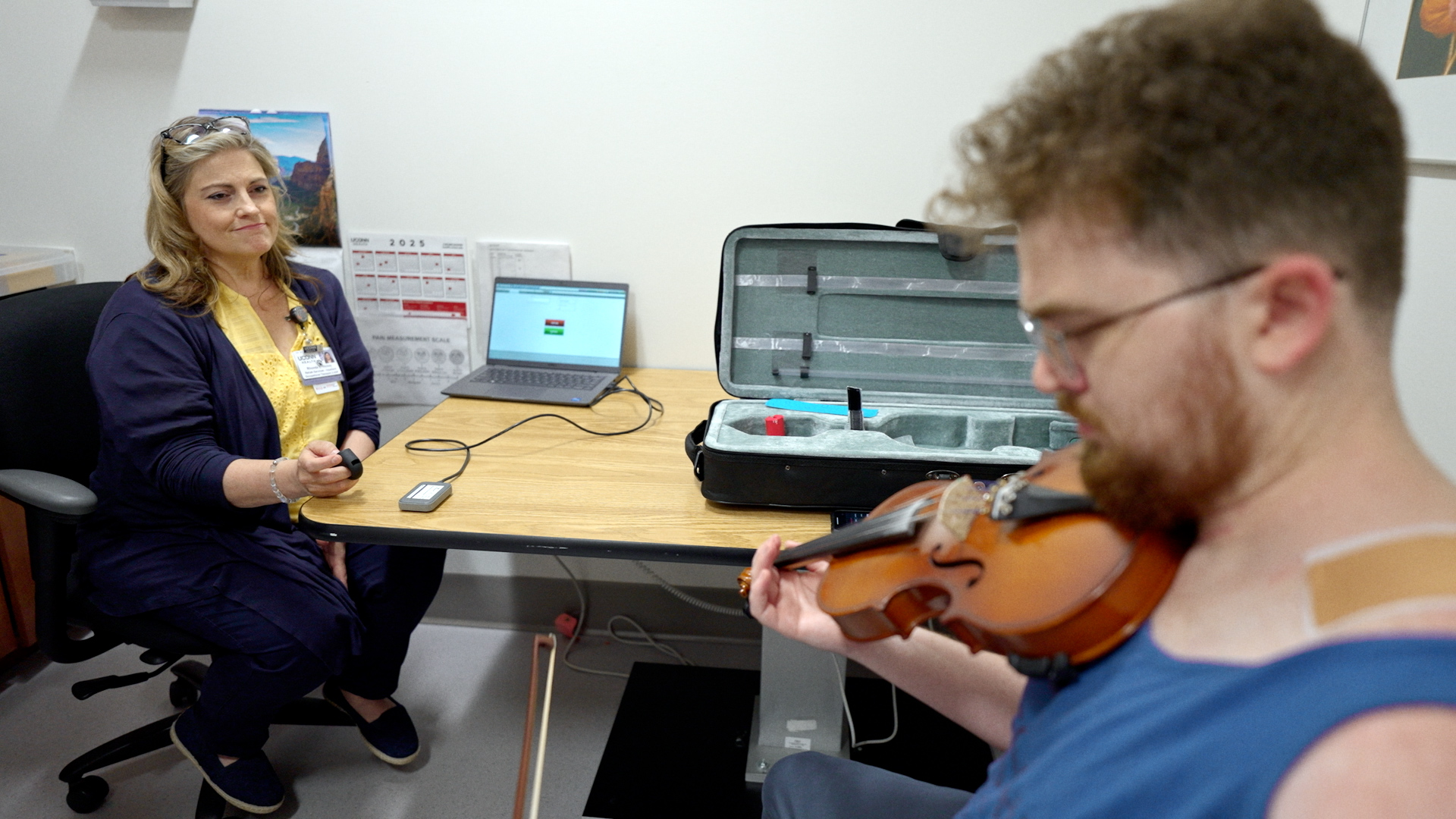 Degree Program:Junior, Electrical Engineering, with a focus in Biomedical engineering
Degree Program:Junior, Electrical Engineering, with a focus in Biomedical engineering
High School: Weston High School, Weston, CT. “I’m from Bridgeport, but the state’s ‘Project Choice’ program allowed me, as an urban student, to attend high school in a suburban environment – in this case, Weston – which enjoys stronger school funding.”
Why Engineering?
“When I started at UConn, I was planning a career in biology. The summer following my freshman year, I interned with the Bridgeport Department of Health & Social Services. The department runs various programs to educate people about epidemiological diseases, such as diabetes, and how these diseases affect their lives. We hosted dances in the park, for example, and invited members of the Bridgeport community to enjoy these free events. We passed out educational material, dispensed and showed people how to properly use free insulin pumps, and talked with them about how to better manage and prevent diabetes. This experience taught me that it was not medicine per se that interested me, but rather the impact of diseases on individuals and communities. I became interested in learning how engineered devices, such as an insulin pump, can improve the lives of patients. So I switched from biology and enrolled in engineering.”
Why UConn?
“I was planning to attend college at American University in Washington, D.C. In fact, the summer following high school, I was taking classes at American University. But my dad suffered a (non-fatal) heart attack, and after the attack, he wanted me to be closer. Unbeknownst to me, earlier in the year he had paid the deposit for me to attend UConn ‘just in case.’ So, days before I was to matriculate, I packed up my belongings and moved from D.C. to Storrs.”
“One of the lessons I’ve learned is that UConn offers so many choices – different academic programs, extracurricular activities, and faculty – it’s very diverse. You don’t leave UConn the same person as when you entered.”
Career Plans
“I am very fortunate in being a Gates Millennium Scholar. My scholarship pays for all of my undergraduate and graduate education. I plan to pursue my master’s degree in the Biomedical Engineering program, which offers a hospital-based two-year Clinical Engineering Internship. Ultimately, I would like to work with bioinstrumentation, understand the medical side of instruments and the technology of patient care.”
Academic Activities
“I interned in the clinical engineering unit at Bridgeport Hospital. After being trained, I shadowed a mentor in the OR, ER and anesthesiology. As a biomedical engineering intern, my job was to make sure the medical devices were working properly. I learned hands-on the importance of biomedical engineering in the hospital setting. Medicine today is very dependent on instruments and technology, from infusion pumps, MRI’s and lasers to radiation medicine, so the role of the biomedical engineer in properly servicing devices and in educating health professionals in the use of the equipment is essential. I also learned a lot about the patients themselves, and the bridge between how medical technology can be designed to provide efficient patient care.
Last summer, I worked in the research lab of Dr. Bryan Huey [assistant professor of Chemical, Materials & Biomolecular Engineering] as part of the Northeast Alliance Undergraduate Research Program facilitated by Drs. Washington and Aggison in the MCB Department. My project integrated nanotechnology with biomaterials. Working with materials on the nano level helped me understand how the research environment pushes the application of new technologies. This summer I plan to intensify my research experience by working with Dr. Eric Donkor in the Electrical & Computer Engineering department.”
Beyond Engineering
“I am President of the National Society of Black Engineers (NSBE) chapter on campus. We have about 70 members. Our mission is to ‘increase the number of culturally responsible Black engineers who excel academically, succeed professionally, and positively impact the community.’ Our theme is Living the Mission, which means that rather than just talking about our objectives, we are working toward achieving them. When I first joined NSBE as a freshman, although I was a Biology major, I found that everyone was very focused on academics and developing yourself into the best candidate for career success. This mindful attitude has helped mold me into the leader I am today.
I am also a member of the Muslim Student Association and served as President last year as well as Public Relations chair this year. I find that MSA helps me achieve a balance between my academics, the mission of NSBE and its focus on community, my other activities and my spiritual beliefs. Islam is the foundation of my success and guidance, since the struggle is to live by good example by actively implementing Islam in all my dealings, whether through leadership, my interactions or academics.
I’m also a Community Assistant in the Northwest Quad halls. I oversee first-year students, who often arrive at UConn without a strong sense of who they are, much less what academic focus they want to take. I try to lead by example, be an active participant and help them see that their actions define them and determine their future.”


